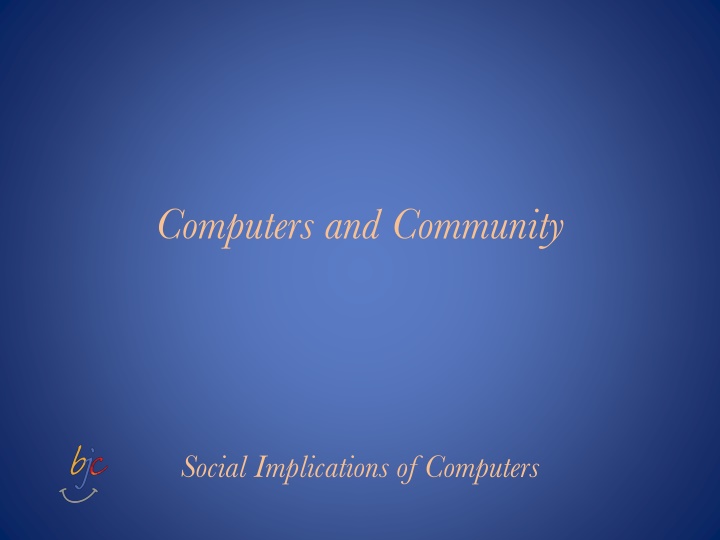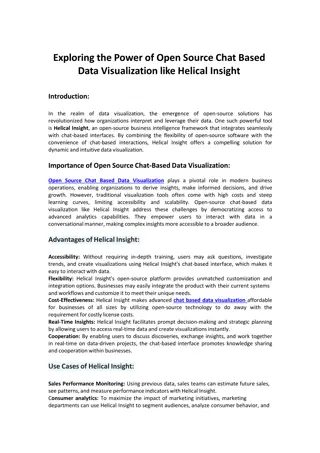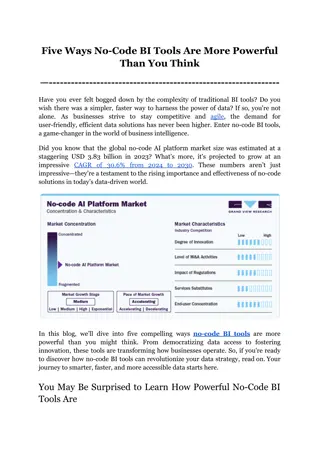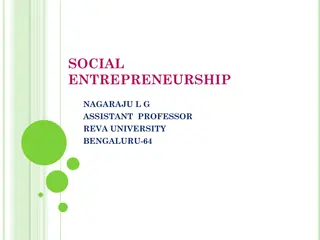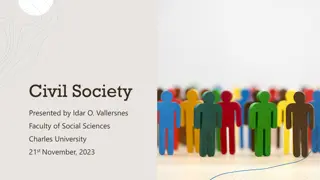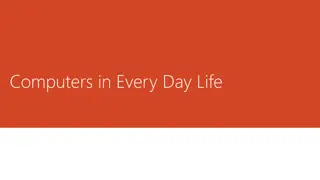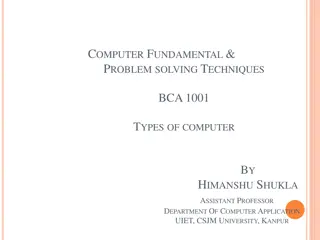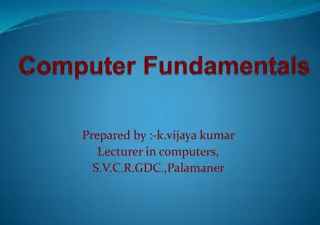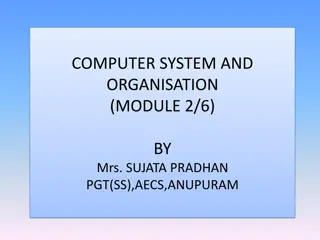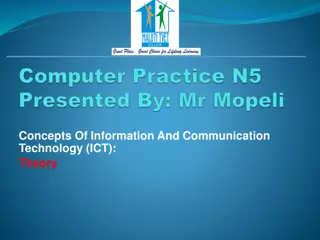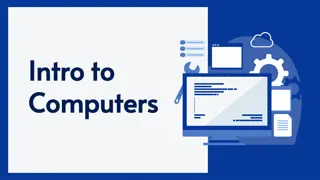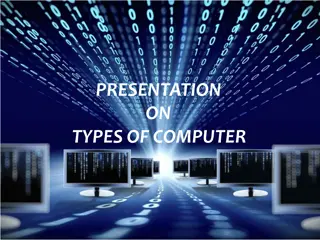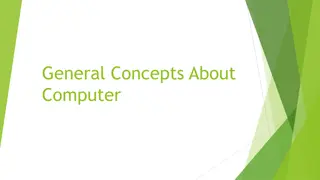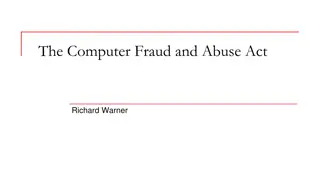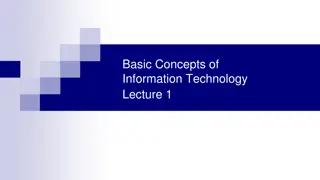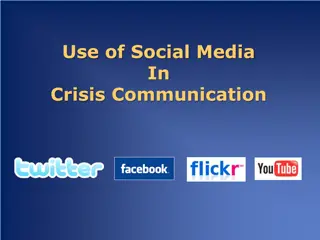Social Implications of Computers: Are They Isolating or Democratizing Society?
This content explores the social implications of computers on communities, discussing whether computers are isolating people or democratizing society. It touches on topics like online versus face-to-face interactions, game addiction, online commerce, democratizing aspects like activist organizing and blogging, as well as the idea that the web runs on love rather than greed.
Uploaded on Feb 25, 2025 | 1 Views
Download Presentation

Please find below an Image/Link to download the presentation.
The content on the website is provided AS IS for your information and personal use only. It may not be sold, licensed, or shared on other websites without obtaining consent from the author.If you encounter any issues during the download, it is possible that the publisher has removed the file from their server.
You are allowed to download the files provided on this website for personal or commercial use, subject to the condition that they are used lawfully. All files are the property of their respective owners.
The content on the website is provided AS IS for your information and personal use only. It may not be sold, licensed, or shared on other websites without obtaining consent from the author.
E N D
Presentation Transcript
Computers and Community Social Implications of Computers
Are Computers Isolating? Yes: People spend time online instead of face to face. (Even when they are face to face with other people!) Game addiction Online commerce hurts downtowns. No: People with obscure interests can find colleagues. People with disabilities affecting f2f contact can meet others. Reconnect with old friends on Facebook.
Are Computers Democratizing? Yes: Facilitate activist organizing (Arab Spring, Obama) Anyone can blog, etc. Low-cost cellular Internet empowers global poor. No: The rich are heard more than the poor, even online. Selective search results make walled microcommunities. NSA, Google, ISPs know too much about us. Positive feedback in popularity of ideas.
The Web Runs On Love, Not Greed Kevin Kelly, Wall Street Journal, Jan 3, 2002: Right on cue, the demise of the dot-com revolution has prompted skepticism of the Internet and all that it promised... The hundreds of ways in which the Internet would "change everything" appear to have melted away, or to have not happened at all. As the new year begins, a collective new year's resolution is surfacing: "Next year, next time, we won t believe the hype. This revised view of the Internet is as misguided as the previous view that the Internet could only go up. The Internet is less a creation dictated by economics than it is a miracle and a gift... Why don't we see this miracle? Because large amounts of money can obscure larger evidence. So much money flew around dot-coms that it hid the main event on the Web, which is the exchange of gifts. While the 50 most popular Web sites are crassly commercial, most of the three billion Web pages are not. Only 30% of the pages on the Web are built by companies and corporations like Pets.com. The rest is built on love, such as Care4pets.com or Responsiblepetcare.org.
Digital Divide UCB EECS grad admissions 2013: 96 students, 17 women, 3 minorities Not for lack of trying! Old digital divide: Poor have no computer access. New digital divide: Poor have consumer access.
